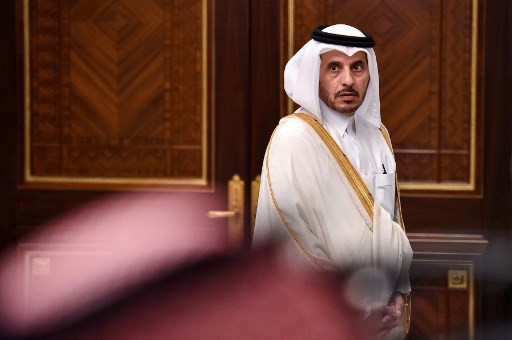
Qatar denies Gulf bloc exit rumors
by News DeskQatar denied on Thursday that it plans to quit the Gulf Cooperation Council as it prepares to mark three years of isolation led by the regional bloc's heavyweight Saudi Arabia.
However, the gas-rich state cautioned that the effort by three of the GCC's six members to isolate Doha economically and politically meant people in the region were "doubting and questioning" the organization.
Rumors of Qatar's imminent departure from the GCC, founded in 1981 and headquartered in Riyadh, have been swirling in Gulf capitals in recent weeks, with analysts and diplomats flagging it as a possibility.
"Reports claiming that Qatar is considering leaving the GCC are wholly incorrect and baseless," Qatar's assistant foreign minister Lolwah al-Khater told AFP.
"Such rumors must have originated from people's despair and disappointment with a fractured GCC, which used to be a source of hope and aspiration for the people of the six member countries," she said.
"As we are reaching the third year of the illegal blockade on Qatar by Saudi, UAE and Bahrain, there is no wonder why the people of the GCC are doubting and questioning the GCC as an institution.
"Qatar hopes the GCC will once again be a platform of cooperation and coordination. An effective GCC is needed now more than ever, given the challenges facing our region."
Saudi Arabia, the United Arab Emirates and Bahrain, along with non-GCC member Egypt, abruptly cut diplomatic, economic and travel ties with Doha in June 2017 over their insistence that Qatar was too close to Iran and backing radical Islamist movements.
Qatar fiercely rejected the charge and refused to budge on any of the 13 demands made by its allies-turned-adversaries. They include the closure of the Doha-based Al Jazeera news network and shutting a Turkish base.
The dispute will enter its third year on June 5.
"Qataris are asking themselves what benefit a membership in the GCC still has, as the organization has been usurped by Saudi Arabia and the UAE to coerce the smaller states into followership, while no initiative is being made to bring the Gulf Crisis to an end," said King's College assistant professor Andreas Krieg.
Oman and Kuwait are the other two members of the body, which oversees regional economic and military coordination, along with Qatar and its regional rivals.